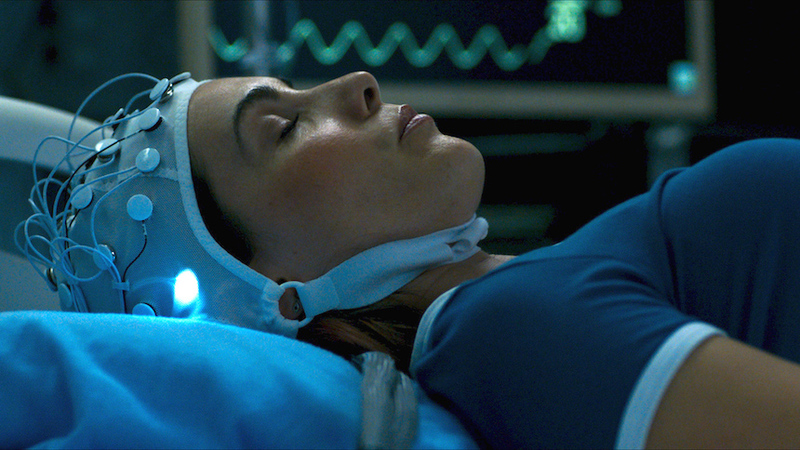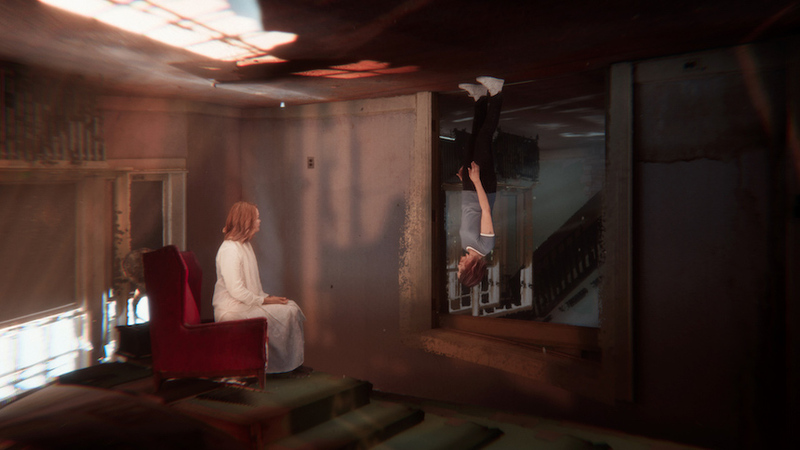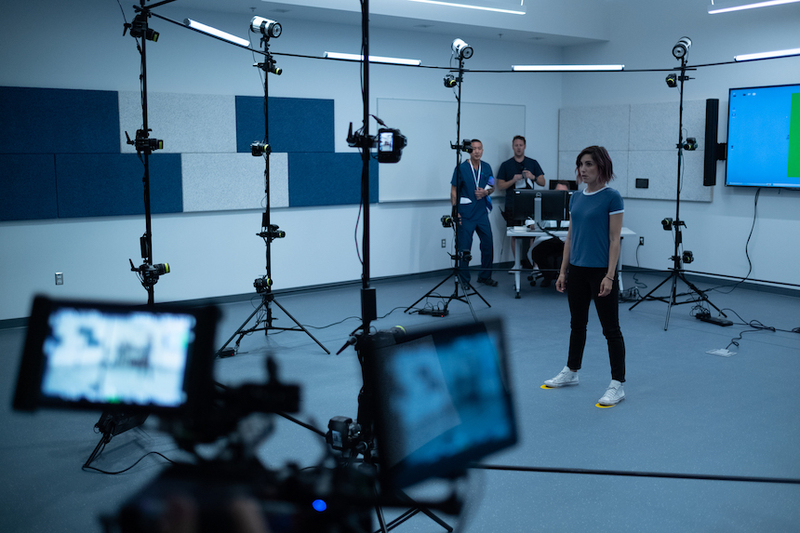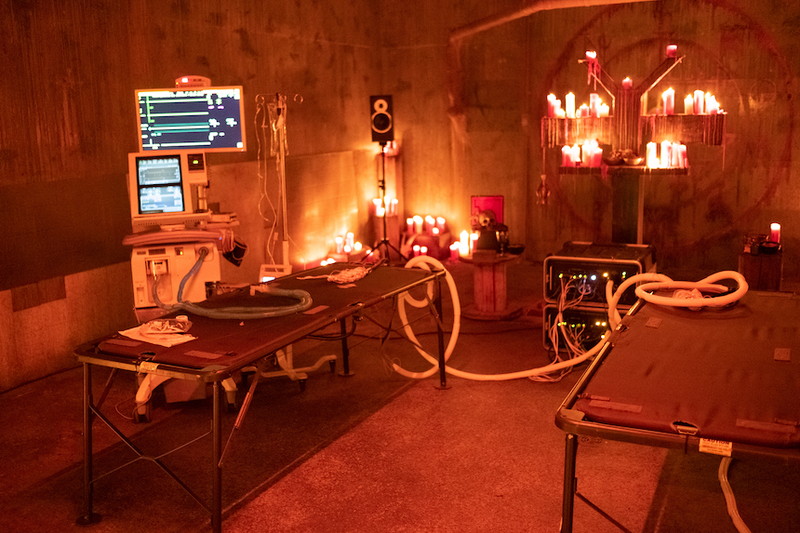DEMONIC Interview: Neill Blomkamp On Combining Science Fiction With Supernatural Horror
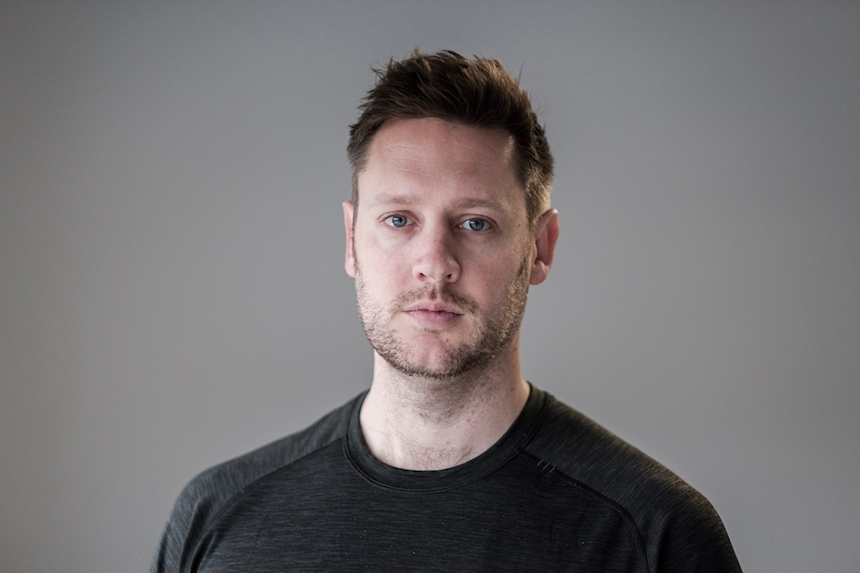
The first contact in District 9, Neill Blomkamp’s powerful first feature film, turns out to be different than we might anticipate. The aliens stranded on a spaceship on the skyline of Johannesburg, South Africa, are malnourished, dirty, and without direction. Eventually their temporary refuge turns into a dangerous slum, making their presence an absolute nuisance to the human residents of said city. The echoes of apartheid resonate in the images.
Although it bothers his critics, Blomkamp has been an undeniable reference in science fiction ever since, known for building entire worlds that say a lot about our present time. His work encompasses action cinema with explicit violence, mockumentary, and even body horror. The science fiction of his first three features –District 9, Elysium and Chappie– takes place in a hostile environment. Aliens, robots, advanced technology and artificial intelligence inhabit Blomkamp's imaginary, where they are used to address pertinent topics such as social inequality, xenophobia, urban crime, overpopulation, illegal immigration, environmental pollution and the greedy corruption of the political/corporate power.
In the years since Elysium –a film ahead of its time: imagine the resonance if it had been released with Donald Trump in power– and the fun and emotional Chappie, Blomkamp focussed on his own studio: Oats Studios. In addition, he released a series of short films on the Internet –among them Rakka, Firebase and Zygote– with the possibility of turning them into large-scale projects. Rakka, for example, is a three-part proof of concept about a brutal alien invasion and the subsequent human resistance in that post-apocalyptic world.
Blomkamp's fourth feature film, Demonic, was surprisingly announced in December 2020, after principal photography was quietly completed in the middle of the COVID-19 pandemic. The movie revolves around Carly (Carly Pope), a woman haunted by her past: in 1998, her mother (Nathalie Boltt) was incarcerated for murdering more than 20 people. When the film begins Carly is contacted by an old friend of hers, Martin (Chris William Martin), who informs that her mother is one of the patients at the medical technology company Therapol.
This is where Blomkamp returns to science fiction: Carly agrees to connect her mind to her semi-comatose mother’s, with the intention of helping her. Blomkamp shows us a deliberately imperfect simulation, through volumetric capture: “a new three-dimensional video technology that turns actors into geometric objects.”
Demonic also marks his foray into supernatural horror, where demonic possessions and exorcisms abound. Carly suffers from recurring nightmares that are connected to reality. The movies develops a whole mythology about a demon and a cursed site that could completely alter Carly's perception of her mother's vicious display of violence.
The supernatural intersects with sci-fi in Demonic. A virtual space built through memories coexists with horrific oneirism; the modern (technology and weaponry) with the ancient (religious iconography and an old holy lance). Demonic is a combination of genres that, after those shorts from Oats Studios, feels like a continuation of Blomkamp's more experimental and playful facet. I chatted with the director about all this prior the release of Demonic.
IFC Midnight’s will release it in theaters and everywhere you rent movies August 20th.
ScreenAnarchy: Usually you’re more viewed as a science fiction director but there’s horror in your previous work: body horror and, in some of your shorts, a kind of cosmic horror. DEMONIC is classic supernatural horror, still it’s a unique mixture of elements. How was your approach?
Neill Blomkamp: I’m very interested in cosmic horror. Body horror is another thing that I’m definitely interested in and is present definitely in Elysium and District 9. I’m interested in horror, but you’re right in the sense that this is the first time I’ve ever mess with more traditional horror elements like actual demonic possession.
Ironically, the Oats Studios stuff comes the closest to actually doing straight up horror. Zygote, Firebase and Rakka would be verging on horror, actually all of those movies are science fiction horror.
Demonic had to do with wanting to see if I could make my own self-financed horror film in the vein of something like Paranormal Activity. I wanted to have these classic horror elements, like demonic possession and an exorcism, as cornerstones of the story.
I also connect the simulation sequences to your short films because I feel that you’re being more experimental and playful with the visuals of your work.
Yeah, I think there would’ve been too many concerns at a higher budget level, with a bigger studio, if I was to put that kind of volumetric capture imagery into a big film. It’s just too crazy, the level of glitchiness and errors, like the actual real problems that you get from it. You can experiment more at this budget level, I think it’s awesome that it ended up happening the way that it ended up happening because I’ve always wanted to use volumetric capture and I didn’t really have an outlet. I thought the outlet would be Oats Studios and I started speaking to volumetric capture companies about what are the elements involved and what does it take. To narratively figure out how to put it into a feature structure where I was hoping the audience would accept the glitchy nature of it. It is experimental and I think this is the right venue to do that.
You have a great collection of creatures. Now you’re adding a bird-like demon, how was conceived?
It’s weird, because of the pandemic I was looking at images of the plague masks from the Middle Ages, and that long bill that they have. The beak turned into the raven, crow kind of imagery, and feathers and black fur. I just wrote it and then I gave the write up of it to Eve Ventrue, this concept artist that I worked with who I love. She sent back an image that was basically the final image that’s in the movie. The second I saw it I was like “I love this creature.” Then we built a seven-foot creature outfit with an animatronic beak. I thought there was a chance the audience would not be into the beak and the look of it, but I didn’t really care, I was like “I just want to see what this thing looks like.”
I don’t think I’ve seen before exorcists with high-tech. I got a kick out of that.
That was one of my favorite elements. When the pandemic hit and I wanted to do a low-budget film, I really just pull a bunch of ideas that I had out of mental shelves and put them together in the movie. One idea that I always had was: what if mass murderers in history that are political leaders, like Stalin, were demonically possessed? What if that’s what led to what happened? If that’s the case, the Vatican would need a highly well-funded massive unit to be able to take on someone of that scale, to exorcise someone of that scale. If you made other movies in the world of Demonic you could actually scale it up hugely, it could be almost like a geopolitical thing, you could take demonic possession into the realm of politics. For this movie, which is more intimate and smaller, it fit with the idea of buying up tech companies that are experimenting with VR for people that are in comas or medical situations where their mind is active but their body isn’t. I was just playing with that idea.
Emotion and family bonds are present in your work since DISTRICT 9. DEMONIC is about the difficult relationship between a mother and her daughter. What was the motivation?
I needed an emotional engine to drive the story. I thought that a mother-daughter relationship would be interesting. I loved the idea that the demon had essentially taken over the mother and done things with the mother, in a way that Carly was misunderstanding. You’re always trying to get an emotional response from the audience so I hoped that the third act resolution with her and her mom, would be emotional, which is in the middle of something that was meant to feel like a horror film. I was trying to keep my eye on where the emotions were for the characters wherever we were in the film.
In science fiction horror, I know that ALIEN is very important for you. As for supernatural horror, do you have favorite films?
I wasn’t really into paranormal horror that much. I like The Exorcist and I love The Shining, but it’s hard to name horror films beyond those that really had a huge effect on me. To me Alien is horror as much as it’s science fiction, that movie had a huge effect on me. Rakka is science fiction horror, I love being in that zone.
The Blair Witch Project and Paranormal Activity were the most inspirational for Demonic, but it was more because the filmmakers had paid for those movies themselves, because in the circumstances it was like the smartest thing to do. When the film industry just wasn’t really working, it felt like “oh well, I could just shoot something the way that Paranormal Activity was shot”, and that’s what I did.
A version in Spanish of this interview was also published at Cinema Inferno



